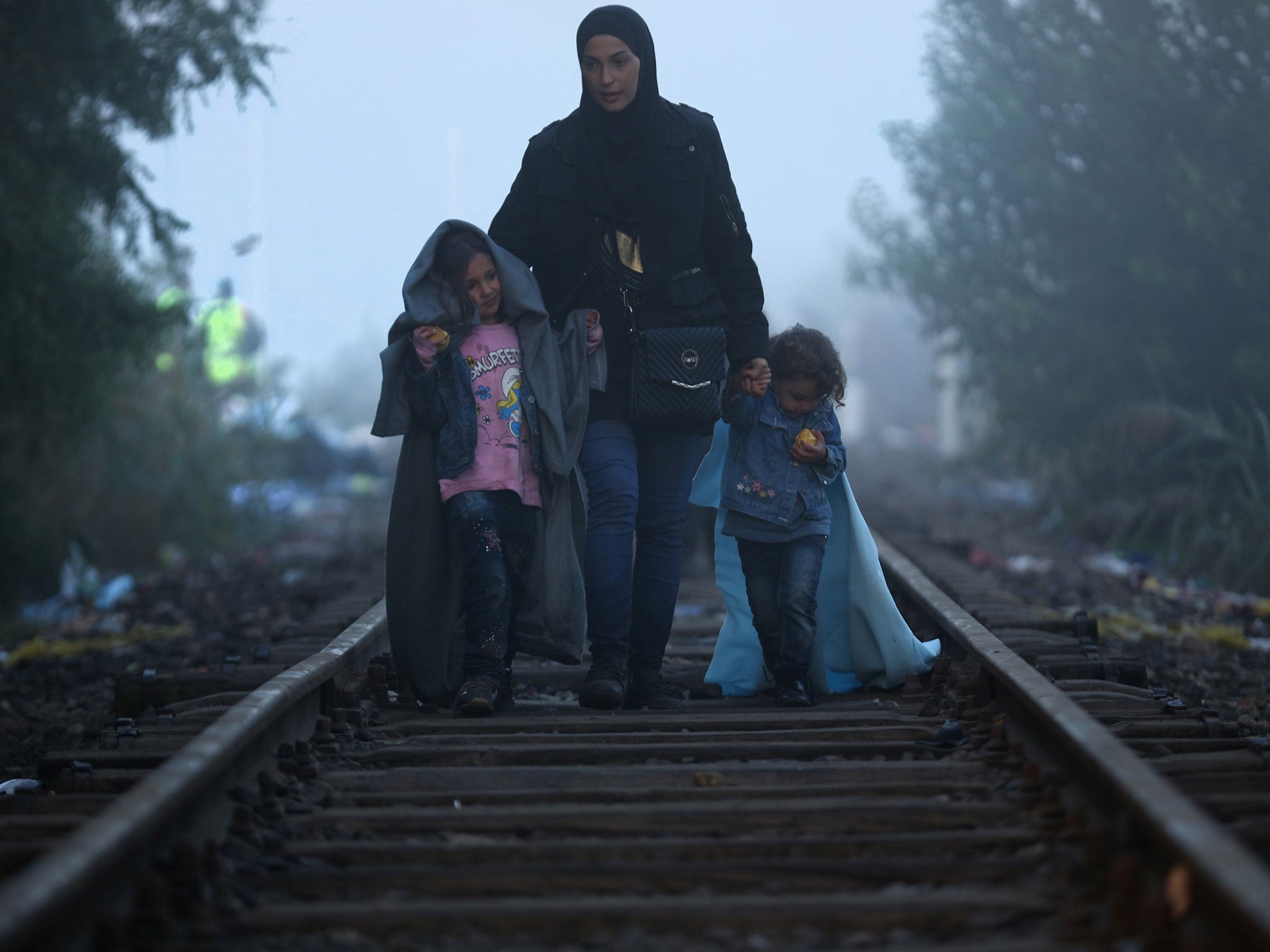Europe's refugee crisis: Father rejects freedom to await missing family
Police officials near the border said they do not know how many families have been separated

The train ticket would take Josef Majade to a place where he would be safe, but he no longer sought that refuge.
Instead, he lay against a heating vent at the Keleti railway station in the Hungarian capital Budapest and tugged a small scarf around his grey beard. A bag of apples sat next to him, but he could not bear to eat. He had left Syria with a family of five – and now three of them were missing. Trains to Austria or Germany kept coming. But Mr Majade opted not to go, longing for those whose passports he held.
“Some days I just get cold, and I wonder if they are cold, and then I burn on the inside,” Mr Majade said. He couldn’t find his wife, his only daughter, 13, and his youngest son, who is five.
More than two weeks ago, a friend knocked on the door of his home in Damascus and told him to be careful. He said he took it as an omen that his family was in danger. Civilian attacks had become common in Syria. So he and his family left. “How could I start a new life without them? I feel so much shame,” he said.
The underpass beneath the Keleti railway station is a tent city that has become the underbelly of the refugee crisis here. Volunteers have worked to bring a little joy with music from local guitarists and crayons for children so they can draw images of their dreams.
Among the smiling faces, though, are those whose dreams have changed. They just want to find their families, who were separated after being tricked by smugglers or while running away from aggressive police.
They are people who left a land of uncertainty only to come across a new uncertainty. And each time a train boards, they must choose between freedom and family; between staying and going.
Police officials near the border said they do not know how many families have been separated. Nor could they say what efforts have been made to reunite them. “We just don’t know where they are,” said Zsuzsanna Zohar, a spokeswoman for Migration Aid, an organisation helping refugees, at the train station. “Immigration authorities have been too overwhelmed to track them.”
At about 9am on the fourth day since Mr Majade had lost his family, a volunteer at Keleti named Lobna El Gaby, 25, was on Facebook when she saw an unusual notice under Mr Majade’s picture.
“I am at Gyor train station with his family now,” the commenter wrote, with a picture of Catherine, his daughter Judy, his son Jude and his nephew. They were safe.
Ms Gaby went to find him. She showed him the picture. “Thank you, everyone,” he said, as tears ran down his face. The volunteers bought him a ticket. The noon train to Gyor arrived, and this time Mr Majade could climb aboard.
© The Washington Post
Join our commenting forum
Join thought-provoking conversations, follow other Independent readers and see their replies
Comments